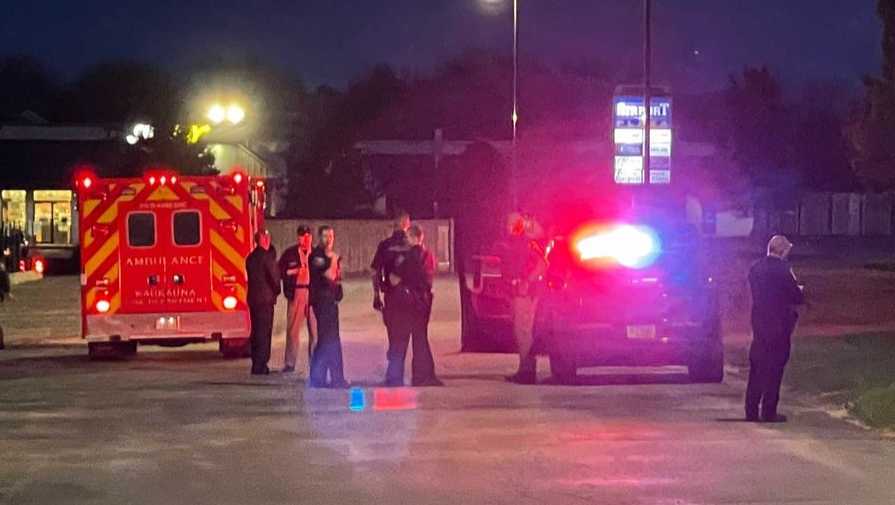Oneida Casino Shooting Survivors Need Psychological First Aid, Psychologist Says
Posted on: May 9, 2021, 11:56h.
Last updated on: May 10, 2021, 10:46h.
Oneida Casino has reopened its Wisconsin complex following two recent fatal shootings there. But there could be a longer-term emotional impact on employees and others from the trauma, warns a UNLV psychologist.

Earlier this month, a former employee shot three people at a restaurant on the Oneida Nation casino complex before he was killed by police. Two of the people shot, Ian Simpson and Jacob Bartel, died from their injuries.
“At the Oneida complex, there very well may be an acute stress response that will look like an early kind of posttraumatic stress disorder (PTSD), especially for those who were present during the shooting,” UNLV’s Stephen Benning told Casino.org.
There were counselors available to workers who are trying to cope with the May 1 incident at the tribal property. Oneida Nation Chairman Tehassi Hill told WLUK, a local TV station, that they are taking a balanced approach to employees and the wider community by taking care of physical, emotional, and spiritual health.
Such a pre-emptive effort was praised by UNLV’s Benning.
“It would be most helpful for the Oneida casino operations to provide access to psychological first aid providers for their employees,” Benning said.
The shooter was an ex-employee who returned to his former workplace. By the time the incident was over, two workers were dead and a third person was seriously injured. The shooter was killed by police.
“A few days after a shooting like the one in Wisconsin, psychological first aid promotes contact and engagement with people so they don’t feel isolated, [and can] gather information and current needs and concerns, provide practical assistance to help employees know what to do, connect people with social supports in their lives, give information about typical reactions to traumatic stress, and link survivors with services they may need,” Benning explained.
Not One Size Fits All Healing Process
Such a healing approach should be provided in a “modular format” to tailor “the intervention to what a particular employee needs at the time. It is not a blanket one-size-fits-all approach,” Benning said.
It does not require people who were at the scene to talk through what happened to them during the shooting, Stephen Benning adds.
“To the extent that people have trouble processing the shooting, their acute stress might develop into posttraumatic stress disorder, in which they experience intrusive memories or sensations about the trauma, avoid reminders of the trauma, develop negative beliefs about themselves or negative moods, and have alterations in their levels of arousal and concentration,” Benning said.
Comparison With Mandalay Bay
Based on his study of the Oct. 1 2017 mass shooting at Mandalay Bay on the Las Vegas Strip, only about half of the people who were present would be expected to have that level of posttraumatic stress a month and a half afterward. It declines to about one in five people experiencing that level of posttraumatic stress a year afterward, Benning said.
Many were killed and several hundred injured in the Mandalay Bay shooting. There were tens of thousands of potential targets at the concert.
“The scale of the Mandalay Bay shooting was greater than that in Oneida…. The safety of the broader community may have felt more at risk,” Benning said.
“It was also not an incident perpetrated by a former employee of Mandalay Bay, so it felt more senseless, and people still have no clear motive about why that shooting occurred to help them close the story of that incident,” Benning added.
He advises those showing some traumatic stress symptoms and who may feel “substantially distressed or impaired in their ability to function in their interpersonal or work lives” to seek professional help.
“Psychological first aid may be most strongly indicated now,” Benning said.
He further recommends providing skills for psychological recovery. Especially for those “who feel like they need some help coping with the effects of the trauma.
“That method will give them specific skills to promote problem-solving skills, engage in positive activities, manage their reactions, adopt helpful thought patterns, and rebuild healthy social connections.”
Related News Articles
Most Popular
Mirage Las Vegas Demolition to Start Next Week, Atrium a Goner
Where All the Mirage Relics Will Go
Most Commented
-
Bally’s Facing Five Months of Daily Demolition for Chicago Casino
— June 18, 2024 — 12 Comments
















No comments yet